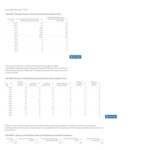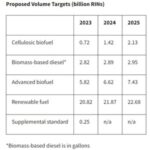Trump says he’ll talk to EPA about RFS, SREs
Energy Disrupter
ADVERTISEMENT
President Trump on Aug. 18 verbally committed to speaking to the U.S. EPA regarding the Renewable Fuel Standard and small refinery exemptions (SREs) during a visit to Cedar Rapids, Iowa, to participate in a disaster recovery briefing on the derecho windstorm that devastated a large swath of the state on Aug. 10.
During the briefing, Sens. Chuck Grassley, R-Iowa, and Joni Ernst, R-Iowa, explained the impact of the historic derecho, which produced hurricane-force winds that flattened crops and caused severe property damage to a section of the state that measures hundreds of miles long and averages 40 to 60 miles wide.
According to Grassley, current estimates show more than 13 million acres of Iowa crops have been severely impact.
“Over half of our crops have been devastated,” Ernst added, noting that early estimates show approximately $4 billion worth of damage, including $3.7 billion in damage to the state’s agriculture sector due to the loss of crops and structures.
Trump questioned whether any of the damaged corn crop could be salvaged. In response, Iowa Agriculture Secretary Mike Naig said it will depend. A lot of it won’t be harvestable, he said, noting that while Iowa’s agriculture industry is used to dealing with difficult weather, the scale of last week’s event is really tough.
A crop progress report released by the USDA on Aug. 17 provides an initial estimate of the extent to which the derecho damaged Iowa’s corn crop. For the week ending Aug. 9, 13 percent of Iowa’s corn was listed as in excellent conditions, with 56 percent in good condition, 23 percent in fair condition, 6 percent in poor condition and 2 percent in very poor condition. For the week ending Aug. 16, the USDA reports only 9 percent of Iowa’s corn was in excellent conditions, with 50 percent of the crop listed as being in good condition, 24 in fair condition, 10 percent in poor condition and 7 percent in very poor condition.
During the event, Ernst pressed Trump on his treatment of the RFS and SREs. With the impact of the ag economy and the loss of so many crops, Earnst said that Iowa “farmers would love to know that with these gap year waivers that the oil refineries are submitting to the EPA, that we just dispense of those—we not allow them to move forward….Our farmers just really need some help this year, obviously with the crop damage, and that would be a great step forward.”
In response, Trump touted his administration’s May 2019 move to allow year-round E15 sales and asked, “How is ethanol doing with the markets? It’s got to be a little bit tough, right?”
Ernst stressed that, yes, it is very tough for ethanol right now. “Through COVID we saw a decrease in driving, and so the sales of ethanol have not been up where they should be,” she said. “And, we’ve seen that all across the industry—the impact. And, now after the crop damage, it just sets our farmers even farther back.”
She added that the industry needs the EPA to follow the intent of the law with the RFS.
“Alright, we’ll speak to them,” Trump said. “I’ll speak to them myself. I’ll do it myself.”
The Iowa Renewable Fuels Association issued a statement indicating the state will be watching to see if Trump follows through with his commitment to speak to the EPA about the RFS and SREs. “We’re pleased the president has committed to talking with EPA,” said Monte Shaw, executive director of the IRFA. “Now rural Iowans wait to see if Trump orders EPA to deny the baseless and illegal RFS waivers or be stonewalled by his own administration. Iowa is watching.”
A replay of the disaster briefing is available on the White House’s YouTube channel.















